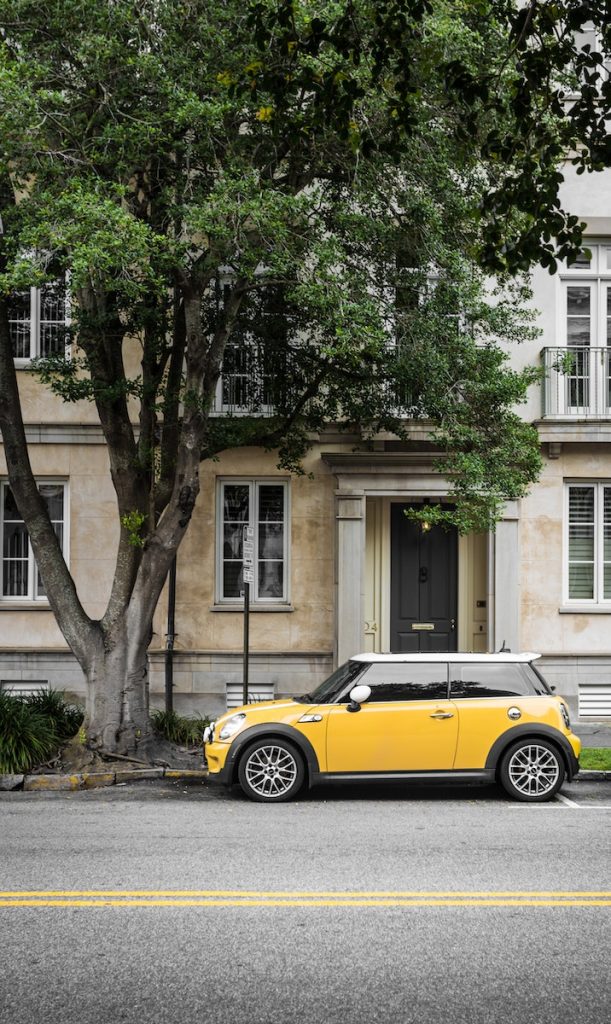I always buy a car with cash when possible. This gives you more leverage with the seller to get the best deal. Many people are trying to dump a vehicle with problems that might look good at first glance. With so many options available, knowing what to look for and how to stay safe when making a purchase can be challenging. In this blog post, we will provide you with essential safety precautions and expert tips to help you decide when buying a car with cash. From researching the seller’s reputation to negotiating a fair price, we’ve got you covered. So, let’s dive in and learn how to make the most of your car-buying experience!
Expert Tips for Buying Cars with Cash

Buying a car with cash can be an intelligent financial decision, but taking the necessary precautions to ensure a safe and successful transaction is essential. Here are some expert tips to keep in mind when buying a car with cash:
1. Know the actual value of the car before negotiating
Research the market value of the car you’re interested in before negotiating with the seller. This will help you avoid overpaying for the vehicle and give you leverage during the negotiation process. KBB.com (Kelly Blue Book) is a great site to get an approximate value for the car. They provide a discount for trade-in vs. the private sale price. Somewhere between these prices will be our target price to pay.
2. Always bring a trusted mechanic or a friend with good car knowledge with you to inspect the car
Having a mechanic inspect the car before buying can reveal any potential issues or hidden repairs. This can save you from costly repairs in the future. Some sellers use tricks to make a car seem better than it is. They can use all leak sealers to thickening agents in the oil and transmission fluid. A good mechanic will spot signs of these car dealer tricks or find hidden problems.
3. Research the seller’s reputation and history before making a purchase
Check the seller’s reputation and past to ensure they are trustworthy and reputable. This can include reading reviews, checking their Better Business Bureau rating, and reviewing their social media presence.
4. Have the seller provide a written receipt and title transfer documentation
Ensure you get a receipt showing the purchase price, date, and other important details. Also, have the seller transfer the title to your name to avoid any legal issues down the line. Also, make sure if there are any leans on the label, they are paid off and clear.
5. Consider purchasing a vehicle history report to reveal any previous accidents or damages
A vehicle history report can disclose important information about the car, including its accident and repair history. This can help you make an informed decision about whether or not to purchase the vehicle.
Getting the Best Deal: Car Buying Tips for Cash Transactions
Buying a car with cash gives you a significant advantage in negotiations. Here are some tips to help you get the best deal:
Research the market value of the vehicle and use it as a basis for negotiation
Before making an offer, research the car’s market value you’re interested in. This will give you an idea of how much the car is worth and the fair price you should pay. Use this information as a starting point for your negotiations. If you find any problems with the vehicle, deduct the repair values from the offer price.
Be aware of extra fees and charges that may be added to the sale price. These can include taxes, registration fees, and documentation fees. Make sure you know the total cost of the car before agreeing to a price.
Consider purchasing a car at the end of the month or year when buying from a dealership. This will allow you to get the best price and take advantage of any end-of-month or year-end discounts.
Dealerships often have monthly or yearly sales goals they want to hit or beat. They may be more willing to negotiate and offer discounts at the end of the month or year to meet these goals. Keep this in mind when shopping for a car.
Compare prices and features of different cars before making a decision

Before making a final decision, compare the prices and features of other vehicles. This will help you find the best deal and ensure you get the most value for your money. Try to seek out the most dependable brand like Honda, Toyota, or any other top-rated brand. You can check consumer reports for car dependability.
Be prepared to walk away if the seller is not willing to negotiate a fair price
You can find a better deal elsewhere, and sticking to your budget is essential.
Stay Safe When Buying Cars with Cash: Essential Tips
Buying a car with cash can be a great way to save money and avoid debt, but it can also present some safety concerns. Here are some essential tips to keep in mind when buying a car with cash:
Meet the Seller in a Public Location and Avoid Meeting at Night
Meeting the seller in a public location, such as a well-lit parking lot, can help ensure your safety. Avoid meeting at night or in secluded areas like a seller’s home.
Bring a Buddy or Family Member with You for Added Safety
Having someone else with you can help deter any potential scams or dangerous situations. Plus, they can provide a second opinion on the car.
Check the Car’s VIN Number and License Plates to Ensure They Match the Title
Verifying that the car’s VIN number and license plates match the title can help prevent fraud or theft.
Be Cautious of Deals That Are Too Good to Be True
If a deal seems too good to be true, it often is! Be wary of heavily discounted cars or sellers too eager to make a sale.
Only Hand Over Cash Once All Necessary Paperwork is Complete and the Title is Signed. This can help prevent any disputes or legal issues down the road.
Following these essential tips, you can stay safe when buying a car with cash and protect yourself against any potential scams or safety concerns.
Before searching for a car, set a budget and stick to it. Make sure to spend on necessary features or upgrades that can add to the cost of the vehicle.
Consider Certified Pre-Owned Vehicles
If you want added peace of mind, consider purchasing a certified pre-owned vehicle. These cars have been inspected and refurbished by the manufacturer and usually have a warranty. Sometimes you can get a 100K mile warranty with certified pre-owned. Try to buy a 2-3 year old with a good contract because most of the depreciation has already happened to the car’s value.
Test Drive Before You Buy
Always test-drive a car before purchasing to ensure it meets your needs and preferences.
Research Financing Options
If you’re considering financing a portion of the purchase, research financing options and consider getting pre-approved for a loan before shopping.
Money-Saving Tips When Buying Cars with Cash
Buying a car with cash means you won’t have to worry about monthly loan payments or interest charges. However, it’s still important to budget wisely and make intelligent decisions to get the most value for your money.
Look for sales or promotions that may be offered by dealerships or sellers
Consider purchasing a car from a private seller instead of a dealership to avoid added fees
Bring a calculator or budgeting tool to help you stay within your budget
Research and take advantage of any tax incentives or rebates that may lower the cost of your purchase
By following these tips, you can save money and invest wisely in a car that fits your budget and needs.
Be wary of sellers unwilling to show you the car’s title or documentation.
Always ask to see the car’s title and other necessary documentation before purchasing. If the seller hesitates or cannot provide these documents, it may be a red flag. Only do business with people who are transparent about the history and condition of the vehicle.
Check the car’s mileage and condition to ensure it is not a “lemon” or damaged vehicle.
Inspect the car’s exterior and interior for wear and tear or damage. Take a test drive and listen for any unusual sounds or vibrations that could indicate mechanical issues. Additionally, check the car’s mileage to confirm that it matches the seller’s claims.
Watch out for sellers who pressure you into making a purchase quickly
Take your time making a decision on a car purchase. Take the time to research the vehicle and compare prices from different sellers. If a seller pressures you to make a quick decision, it may be a sign that they are hiding something about the vehicle’s history or condition.
Avoid purchasing a car that has been in a severe accident or has a salvage title.
These vehicles may have underlying issues that are not immediately apparent and may be costly to repair in the long run.
It’s important to know that the car you’re purchasing has been well-maintained and cared for by the previous owner. Ask to see any available maintenance or repair records and use this information to determine if the vehicle is a good investment. If major repairs like engine or transmission work have happened, check to see if any warranty is left on these major parts.
By following these safety precautions, you can minimize your risk when buying a car with cash and ensure you get a reliable vehicle at a fair price.
Consider the Long-Term Costs

When calculating your budget, think about something other than the purchase price. Consider the long-term costs of owning a car, such as maintenance, repairs, and insurance.
Research Fuel Efficiency Ratings
Gasoline costs can add up over time, so it’s essential to consider the fuel efficiency of the car you’re buying. Look for vehicles with high fuel efficiency ratings to save money in the long run.
Ask for a Warranty or Guarantee
When buying a used car, ask the seller for a warranty or guarantee on the car’s condition. This can provide added peace of mind and protect you from unexpected expenses.
Negotiate for Additional Features or Upgrades
If you’re interested in certain features or upgrades, negotiate with the seller to include them in the sale price. This can save you money and give you the car you want.
Consider Resale Value
Look for cars with a higher resale value, as this can bring in more money if you decide to sell it.
Watch out for fake listings or scams that may use fake photos or information to lure buyers.
Scammers may create fake listings using photos and information from other sources to make their offers seem legitimate. Always ask to see the car in person and ensure the photos match the vehicle you are looking at. If the price is too reasonable to be true, it probably is.
Report any suspicious activity or scams to the appropriate authorities
If you suspect you have been scammed or encountered suspicious activity, report it to the police or the Federal Trade Commission. This will help prevent other buyers from being scammed and may help you recover your money.
By following these tips, you can avoid scams and make an informed decision when buying a car with cash.
Conclusion
In conclusion, buying a car with cash can be a great way to save money and get a good deal on a vehicle. However, it’s essential to take safety precautions to ensure the purchase is legitimate and free from scams. By following expert tips, getting the best deal, and staying safe, you can make an informed decision and get behind the wheel of your dream car. Consider your budget and long-term costs, research financing options, and negotiate for a fair price. With these tips in mind, you’ll be on your way to becoming a savvy automotive cash buyer.





